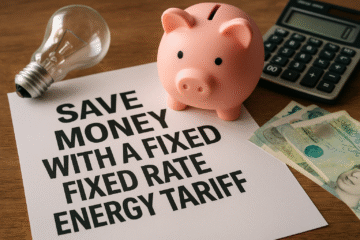When it comes to managing household expenses, energy bills can often be one of the largest outgoings. With the wide range of energy deals available on the market, it can be overwhelming to navigate through the options and find the best value for money. Understanding the factors that contribute to the cost of energy deals and how to compare them effectively is crucial in making informed decisions that will benefit your household budget in the long run. In this article, we will explore the various aspects of energy deals and how to determine their value for money, including factors to consider when comparing deals, the difference between fixed and variable tariffs, the worth of green energy options, additional benefits and incentives, customer service and satisfaction ratings, and ultimately, how to make the best decision for your energy needs.
Factors to Consider When Comparing Energy Deals
When comparing energy deals, there are several key factors to consider in order to determine their value for money. Firstly, the unit rate and standing charge are important components to look at, as they directly impact the overall cost of your energy bills. Additionally, the length of the contract and any exit fees should be taken into account, as these can affect your flexibility in switching to a better deal in the future. It is also important to consider any additional perks or incentives offered by energy suppliers, such as cashback rewards or free smart thermostats. Finally, the customer service reputation of the supplier should not be overlooked, as dealing with a reliable and responsive provider can make a significant difference in your overall experience with your energy deal.
Fixed vs. Variable Tariffs: Which Offers Better Value for Money?
One of the key decisions to make when choosing an energy deal is whether to opt for a fixed or variable tariff. Fixed tariffs offer a set price for your energy usage over a certain period of time, providing protection against price increases in the market. On the other hand, variable tariffs fluctuate in line with market prices, meaning that you could benefit from lower prices when market rates drop, but also face higher costs when they rise. When considering which option offers better value for money, it is important to assess your own risk tolerance and budgeting preferences. While fixed tariffs provide stability and predictability in your energy bills, they may not always offer the best value if market prices decrease significantly during your contract period. Variable tariffs, on the other hand, can offer potential savings when market prices are low, but also pose the risk of higher costs during periods of price hikes. Ultimately, the decision between fixed and variable tariffs depends on your individual circumstances and willingness to take on market risk.
Green Energy Options: Are They Worth the Extra Cost?
In recent years, there has been a growing emphasis on sustainable and environmentally friendly energy options, leading to an increase in green energy tariffs offered by suppliers. While green energy options may come at a slightly higher cost compared to standard tariffs, they offer the benefit of reducing your carbon footprint and supporting renewable energy sources. When evaluating whether green energy options are worth the extra cost, it is important to consider the long-term environmental impact alongside the financial implications. In many cases, the additional cost of green energy tariffs can be justified by the positive contribution to environmental sustainability and the potential for a cleaner and greener future. Furthermore, some suppliers offer incentives such as tree-planting initiatives or carbon offsetting schemes as part of their green energy tariffs, providing additional value beyond just the cost of energy.
Additional Benefits and Incentives: What Should You Look for?
In addition to the basic unit rates and standing charges, many energy deals come with additional benefits and incentives that can add value for money. Cashback rewards, loyalty points, and free smart home devices are common incentives offered by suppliers to attract new customers. When comparing energy deals, it is important to consider these additional benefits alongside the core pricing structure, as they can contribute significantly to the overall value of the deal. For example, a cashback reward or a free smart thermostat can help offset the cost of your energy bills and enhance your overall experience with the supplier. Furthermore, some suppliers offer exclusive perks such as priority customer service or access to discounted home services for their energy customers, which can further enhance the value of their deals.
Comparing Customer Service and Satisfaction Ratings
While pricing and incentives are important considerations when comparing energy deals, customer service and satisfaction ratings should not be overlooked. Dealing with a reliable and responsive supplier can make a significant difference in your overall experience with your energy deal. Before making a decision, it is advisable to research customer reviews and satisfaction ratings for different suppliers to gauge their reputation for customer service. Additionally, consider factors such as ease of communication, responsiveness to queries or complaints, and overall customer satisfaction levels when evaluating suppliers. A supplier with a strong track record of customer service is likely to provide a more positive and hassle-free experience throughout your contract period.
Making the Best Decision for Your Energy Needs: Conclusion
In conclusion, understanding the value for money in energy deals involves considering a range of factors including unit rates, standing charges, contract length, exit fees, additional benefits and incentives, customer service reputation, and environmental impact. When comparing energy deals, it is important to weigh these factors against your own preferences and priorities in order to make an informed decision that best suits your household budget and energy needs. Whether opting for a fixed or variable tariff, considering green energy options, or evaluating additional benefits and customer service ratings, taking a holistic approach to comparing energy deals will help you make the best decision for your individual circumstances. By staying informed and proactive in managing your energy bills, you can ensure that you are getting the best value for money from your energy deal while contributing to a more sustainable future.





